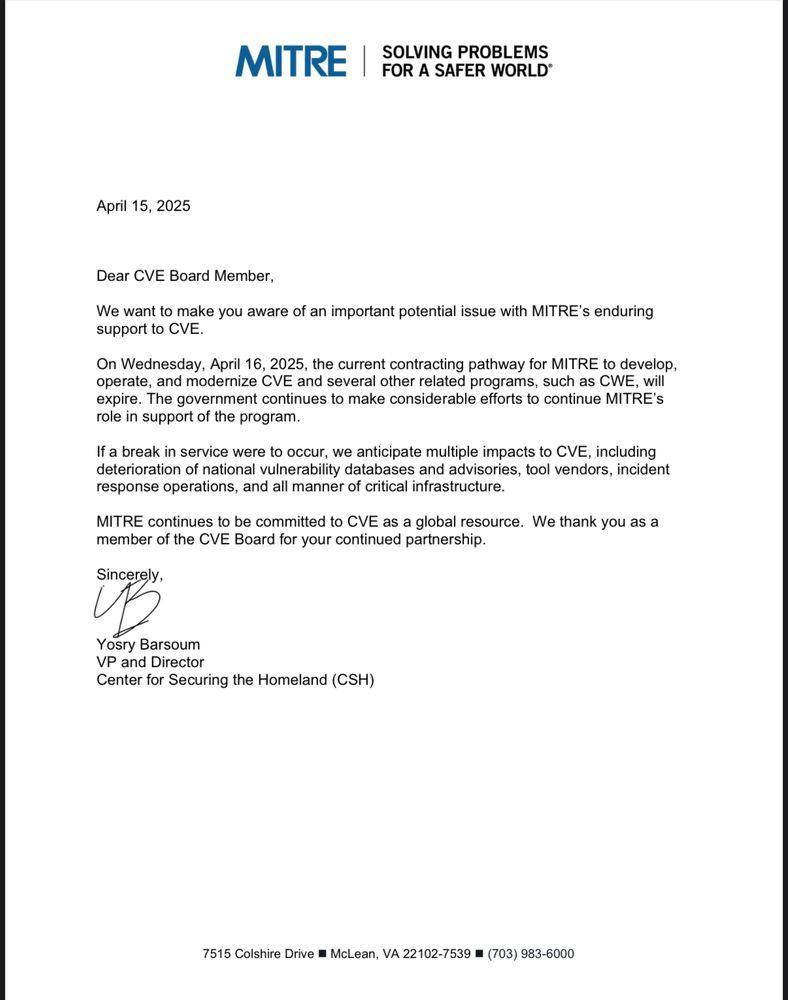MITRE, the non-profit organization responsible for maintaining the world-renowned CVE (Common Vulnerabilities and Exposures) repository, has alerted its board members and the wider cybersecurity community about a potential service disruption. In a letter dated April 15, 2025, MITRE Vice President Yosry Barsoum revealed that the federal contract that enables MITRE to operate, develop, and modernize CVE, as well as associated initiatives like CWE, is set to expire on April 16—with no replacement deal secured.
The U.S. government is reportedly working to ensure continuity, but uncertainty looms. Barsoum emphasized that if the lapse proceeds, it could lead to the deterioration of national vulnerability databases and advisories, severely hampering tool vendors, threat monitoring, and critical infrastructure security.

The Backbone of Cyber Threat Intelligence
CVE, a foundational asset for the cybersecurity world for over 25 years, serves as a repository of publicly disclosed vulnerabilities and exposures. The system is widely used by governments, enterprises, and researchers to track and patch security threats. Its unique identifiers (like CVE-2025-XXXX) are a backbone of modern vulnerability management frameworks and are key to software patching efforts—particularly Microsoft’s monthly “Patch Tuesday” releases.
ALSO READ: Call for Cyber Experts: Join FCRF Academy as Trainers and Course Creators
If MITRE’s operation of CVE is suspended, experts warn it could paralyze coordinated threat intelligence sharing and delay critical security patches across the technology ecosystem. Historical vulnerabilities like Log4j, MOVEit, SolarWinds Sunburst, and WannaCry were first tracked using CVE entries, demonstrating the system’s pivotal role in cyber defense.
Global Repercussions and Growing Concern
Beyond the direct operational concerns, MITRE’s alert has ignited a wave of worry across the international cybersecurity landscape. Observers warn that nation-state actors and cybercriminal groups could exploit any gaps in vulnerability tracking. Others noted that the timing coincides with broader government budget cuts and reductions in cybersecurity-focused funding for agencies such as CISA and NIST, compounding national security risks.
Cybersecurity professionals have already started rallying to mitigate the disruption. Companies like VulnCheck have proactively reserved CVEs for 2025 and pledged to continue issuing identifiers during the transition. MITRE has reassured the community that historical CVE records will remain publicly accessible through platforms like GitHub.



